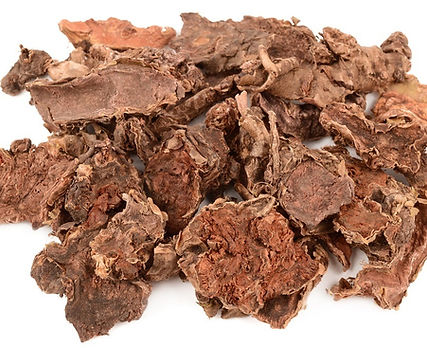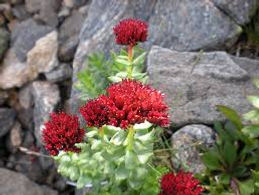

info@clovercn.com Skype: clovernutrition Phone Number: 0086-29-81875649 Working Time: Mon-Fri: 9.00-17.00 Mail: sales@clovernutrition.com
Quality First, Rooted Trust
Genuine Identity, High Purity, Natural Potency












Rhodiola rosea Extract
Clover Nutrition offer Rhodiola rosea extract with ingrdients of Salidroside & Rosavin based on ISO factory.
Rhodiola rosea, also known as Arctic Root or Golden Root, is a plant that is native to the mountainous regions of Europe, Asia and the Arctic region. It grows in dry, cold areas and has been a staple in the diets of many Eastern European and Scandinavian countries for centuries. Traditionally, the plant was given to betrothed Siberian couples to ensure the birth of many healthy children.
1. Production Details:
-
E-mail: sales@aclovernutrition.com
-
Latin Name: Rhodiola rosea Linn.
-
Synonyms: Sedum rosea (L.) Scop. Sedum /hodiola DC./Rhodiola arctica Boriss.,/hodiola iremelica Boriss./ Rhodiola scopolii Simonk./ Sedum scopolii Simonk./ Золотой Корень/ Solotoy Koren/commonly golden root, rose root, roseroot, Aaron's rod, arctic root, king'
-
Part of Used: Root
-
Specifications: total Rosavins; Salidroside
-
Appearance: Brown fine powder
-
Application: Medicine, food additive, dietary supplement
What is Rhodiola rosea extract?
Rhodiola has a legendary history dating back thousands of years. In 77 A.D., the Greek physician Dioscorides documented the medical applications of the plant, which he then called rodia riza, in his classic medical text De Materia Medica. The Vikings depended on the herb to enhance their physical strength and endurance, while Chinese emperors sent expeditions to Siberia to bring back "the golden root" for medicinal preparations. The people of central Asia considered a tea brewed from Rhodiola rosea to be the most effective treatment for cold and flu. Mongolian physicians prescribed it for tuberculosis and cancer.
Rhodiola rosea (commonly golden root, rose root, roseroot, Aaron's rod, arctic root, king's crown, lignum rhodium, orpin rose) is a plant in the Crassulaceae family that grows in cold regions of the world. These include much of the Arctic, the mountains of Central Asia, scattered in eastern North America from Baffin Island to the mountains of North Carolina, and mountainous parts of Europe, such as the Alps, Pyrenees, and Carpathian Mountains, Scandinavia, Iceland, Great Britain and Ireland. The perennial plant grows in areas up to 2280 meters elevation. Several shoots grow from the same thick root. Shoots may reach 5 to 35 cm in height. R. rosea is dioecious having separate female and male plants.
Benefits of taking Rhodiola rosea extract supplements:
Research on Rhodiola rosea and other medicinal herbs was part of the Soviet Union's great push to compete with the West in military development, the arms race, space exploration, Olympic sports, science, medicine, and industry. It is a popular plant in traditional medical systems in Eastern Europe and Asia, with a reputation for stimulating the nervous system, decreasing depression, enhancing work performance, eliminating fatigue, and preventing high altitude sickness.
One of the great advances in more widespread understanding of Rhodiola rosea occurred when the Journal of The American Botanical Council, HerbalGram, published an Overview on Rhodiola rosea in 2002. This outstanding piece of work drew from more than one hundred previously un-translated Russian studies on the plant and its effects on health, revealing a potent and versatile natural healer. Co–authored by pre-eminent Rhodiola scholar Zakir Ramazanov, and New York psychiatrists Richard Brown and Patricia Gerbarg, the overview reported on proven benefits of Rhodiola rosea use for the nervous, endocrine, cardiovascular and reproductive systems, and anti-cancer effects. The overview also described cases of improved mental and emotional health due to Rhodiola rosea use, in patients who had not benefited from other interventions, including drugs and pscyhotherapy.
Rhodiola rosea has long been known as a potent adaptogen. Adaptogens are natural plant substances that increase the body's non-specific resistance and normalise the functions of the body. When a stressful situation occurs, consuming adaptogens generates a degree of generalised adaptation (or non-specific resistance) that allows our physiology to handle the stressful situation in a more resourceful manner. It is believed that adaptogens work by increasing the ability of cells to manufacture and use cell fuel more efficiently.
Since Rhodiola rosea administration appears to impact central monoamine levels, it might also provide benefits and be the adaptogen of choice in clinical conditions characterised by an imbalance of central nervous system monoamines. This is consistent with Russian claims for improvements in depression and schizophrenia. It also suggests that research in areas such as seasonal affective disorder, fibromyalgia, and chronic fatigue syndrome, among others, is warranted.
There have also been claims that this plant has great utility as a therapy in asthenic conditions (decline in work performance, sleep disturbances, poor appetite, irritability, hypertension, headaches, and fatigue) developing subsequent to intense physical or intellectual strain, influenza and other viral exposures, and other illness. Two randomised, double-blind, placebo-controlled trials of the standardised extract of Rhodiola rosea root (SHR-5) provide a degree of support for these claimed adaptogenic properties.
Muscle Recovery
Rhodiola rosea has been shown to shorten recovery time after prolonged workouts, to increase attention span, memory, strength, and anti-toxic action. Rhodiola rosea extract increases the level of enzymes, RNA, and proteins important to muscle recovery after exhaustive exercise. It also stimulates muscle energy status; glycogen synthesis in muscles and liver; muscle protein synthesis and anabolic activity.
Memory
Studies using proofreading tests have demonstrated that Rhodiola rosea enhances memorisation and concentration ability over prolonged periods. It increases the bioelectrical activity of the brain which improves memory and brain energy.
In one study, forty students were randomised to receive either 50 mg standardised Rhodiola extract or placebo twice daily for a period of 20 days. The students receiving the standardised extract demonstrated significant improvements in physical fitness, psychomotor function, mental performance, and general wellbeing. Subjects receiving the Rhodiola rosea extract also reported statistically significant reductions in mental fatigue, improved sleep patterns, a reduced need for sleep, greater mood stability, and a greater motivation to study. The average exam scores between students receiving the Rhodiola rosea extract and placebo were 3.47 and 3.20, respectively.
Cardiac Problems
Rhodiola has also been shown to be effective for cardiac problems caused or aggravated by stress. Its action for these conditions is in its ability to decrease the amount of catecholamines and corticosteroids released by the adrenal glands during stress. The abnormal presence of these stress hormones will subsequently raise blood pressure, cholesterol, potassium levels and increase risk factors for heart disease. Rhodiola has been found to decrease harmful blood lipids and thus decrease the risk of heart disease. It also decreases the amount of cyclic-AMP (c-AMP) released into cardiac cells. Cyclic AMP is related to ATP (adenosine triphosphate), the body's primary energy molecule. C-AMP acts as a 'second messenger' or liaison between the outer and inner environments of the cell. It assists in the uptake of more intracellular calcium into the heart thus promoting a greater potential for heart muscle contraction. Rhodiola thus regulates the heart beat and counteracts heart arrhythmias.
Cancer
Rhodiola has been shown to increase anti-tumour activity by increasing the bods resistance to toxins. A range of anti-oxidant compounds have been identified in Rhodiola rosea and related species and significant free-radical scavenging activity has been demonstrated for alcohol and water extracts of Rhodiola. Rhodiola rosea might be useful in conjunction with some pharmaceutical anti-tumour agents. According to the information from Russian researchers have found that the oral administration of Rhodiola inhibited tumour growths in rats by 39% and decreased metastasis by 50%. It improved urinary tissue and immunity in patients with bladder cancer. In other experiments with various types of cancer, including adenocarcinomas, the use of extracts of Rhodiola Rosea resulted in significant increased survival rate.
Immune System
Rhodiola both stimulates and protects the immune system by reinstating
homeostasis (metabolic balance) in the body. It also increases the natural
killer cells (NK) in the stomach and spleen. This action may be due to its
ability to normalise hormones by modulating the release of glucocorticoid
into the body.
Depression
In animal studies, extracts of rhodiola, seem to enhance the transport of serotonin
precursors, tryptophan, and 5hydroxytryptophan into the brain. Serotonin is a widely studied brain neurotransmitter chemical that is involved in many functions including, smooth muscle contraction, temperature regulation, appetite, pain perception, behavior, blood pressure and respiration. When balanced, it imparts a a sense of contentment and mental ease. Either too much or too little serotonin on the other hand has been linked to various abnormal mental states such as clinical depression. Thus rhodiola has been used by Russian scientists alone or in combination with antidepressants to boost one's mental state, a boon in countries and seasons where one is deprived of adequate sun over prolonged periods of months. This leads to a condition known as SAD or Seasonal Affective Disorder, common to Northern European countries.
Weight Loss
Rhodiola rosea has been studied regarding its effect on exercise performance by increasing energy production. Rhodiola has the capacity to increase ATP production -- the primary source of energy, and heightening this capacity under periods of physical duress. Rhodiola has also been shown to boost energy and fight fatigue by raising levels of muscle glycogen during exercise. Glycogen is a primary source of energy for anaerobic activity such as resistance training. It also significantly reduced lactic acid buildup, a major source of muscle cramping and discomfort. By improving overall energy expenditure, Rhodiola contributes to a greater number of calories burned, and thus improves the effectiveness of a single workout. It also raises productivity throughout the day, and can increase your resting metabolic rate.
Other Benefits
Many other benefits from the use of Rhodiola has been found including its ability to improve hearing, to regulate blood sugar levels for diabetics and protect the liver from environmental toxins. It has been shown to activate the lipolytic processes (fat breakdown) and mobilise lipids from a dipose tissue to the natural fat burning system of your body for weight reduction. It can also clinically enhance thyroid function without causing hyperthyroidism, enhance thymus gland function and protect or delay involution that occurs with ageing. It can also improve your adrenal gland reserves without causing hypertrophy. Throughout the years it has shown to substantially improve erectile dysfunction and/or premature ejaculation in men and normalises their prostatic fluid.
Side effects and safety of Rhodiola rosea extract
Rhodiola may thin your blood, so discontinue use before surgery and consult your doctor if you take blood-thinning medications like Coumadin (warfarin) or supplements like vitamin E.
the medical literature has not reported any adverse effects related to foetal development during pregnancy or to infants who are breast-fed. Yet little is known about the use of this dietary supplement while pregnant or breast-feeding. Therefore, it is recommended that you inform your healthcare practitioner of any dietary supplements you are using while pregnant or breast-feeding.
Dosage
The usual amounts taken are 200 to 600 mg per day of a Rhodiola rosea extract standardized to contain 2-3% rosavins and 0.8-1% salidroside. The nonstandardized amount would be 1 gram of the root three times daily, the amount for the alcoholic extract (40% alcohol) is 5 to 40 drops (0.5 - 1 teaspoon) two to three times per day and for the tea from Rhodiola rosea roots is 1 - 2 cap per day. Rhodiola is usually taken with water before meals or at mealtimes. Please note, that Rhodiola has a more stimulating effect at lower amounts, and a more sedating effect at higher amounts.

4. Package:
A. < 15KG, used box as outside, plastic bag inside.
B. > 15KG in drum as outside, plastic bag inside,, normally weight as 25KG/Drum, drum size 0.0625CBM














